Lose weight in 30 days: Diet to lose up to 5 kilos
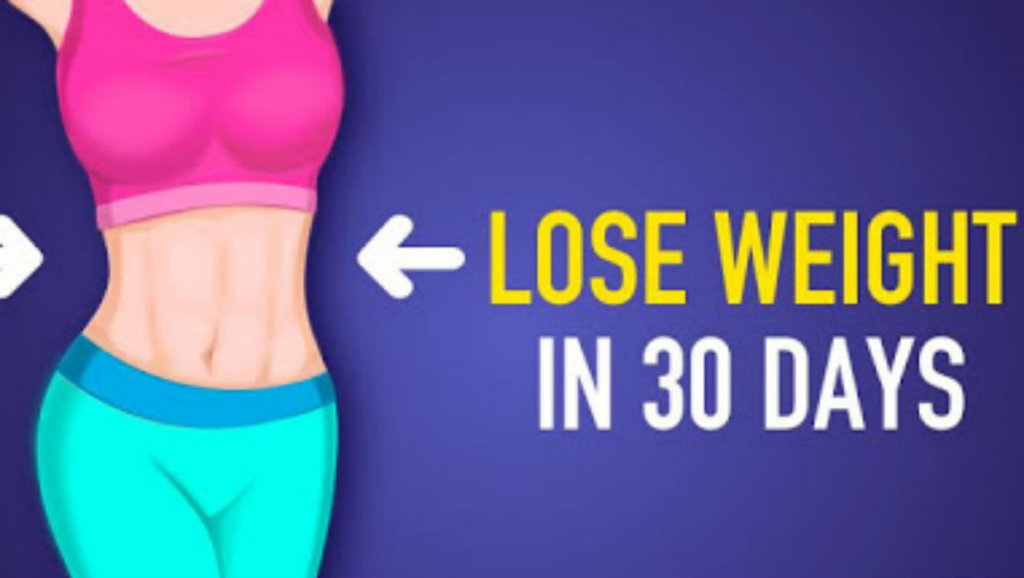
With summer approaching, many people seek effective methods to lose weight in a healthy and sustainable way. Losing weight in 30 days is an achievable goal when adopting a balanced approach that combines proper nutrition, regular physical exercise, and lifestyle changes. In this article, we present a complete guide to help you reach your weight loss goals in one month.
Set Realistic Goals
Before starting any weight loss program, it is essential to set clear and realistic goals. Losing 0.5 kg to 1 kg per week is considered safe and sustainable, totaling up to 4 kg in a month. Setting achievable goals increases motivation and reduces the risk of frustration.
Adopt a Balanced Diet
The foundation of any successful weight loss process is a well-balanced diet. Focus on consuming natural and minimally processed foods rich in essential nutrients.
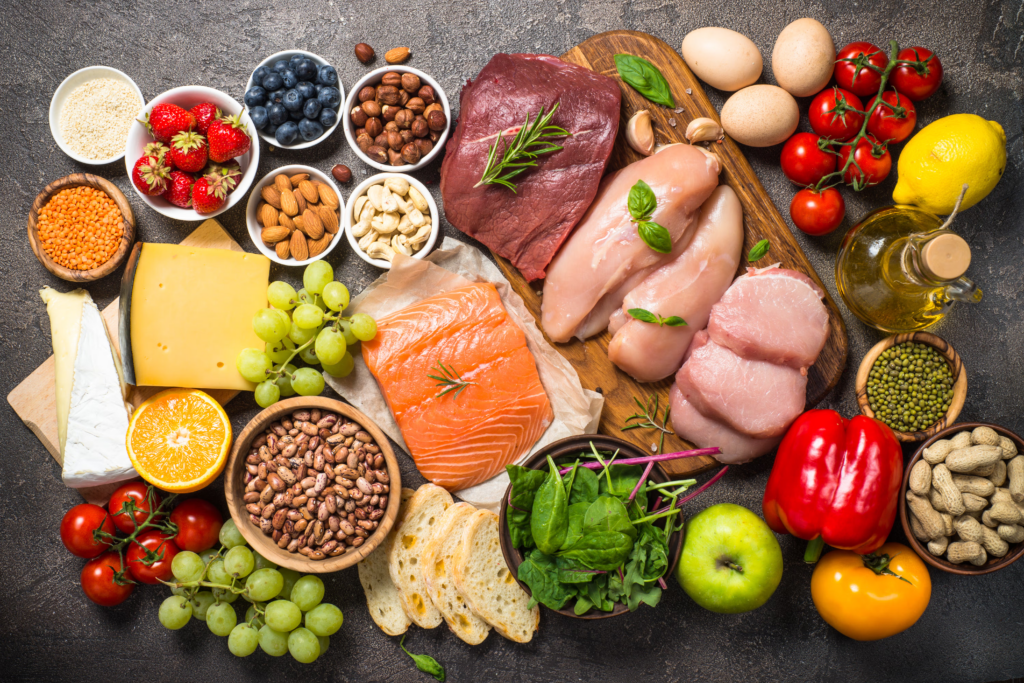
Include Fiber-Rich Foods
Fiber-rich foods promote satiety and help control appetite. Incorporate the following into your meals:
Legumes: chickpeas, beans, lentils, and black beans.
Non-starchy vegetables: kale, arugula, spinach, broccoli, cauliflower, bell peppers, mushrooms, asparagus, and tomatoes.
Fruits: berries, apples, pears, citrus fruits, melons, grapes, and bananas.
Whole grains: oats, brown rice, quinoa, barley, and corn.
Prioritize Lean Proteins
Proteins are essential for maintaining muscle mass and increasing the feeling of fullness. Opt for:
Plant-based proteins: tofu and tempeh.
Fish and seafood: salmon, cod, shrimp, sardines, and trout.
Poultry: skinless chicken and turkey.
Eggs: a versatile and nutrient-rich source.

Consume Healthy Fats
Good fats are important for the body’s proper functioning. Include these in your diet:
Nuts and seeds: almonds, walnuts, pumpkin seeds, and sunflower seeds.
Avocado: rich in monounsaturated fats.
Olive oil: excellent for dressing salads and cooking.
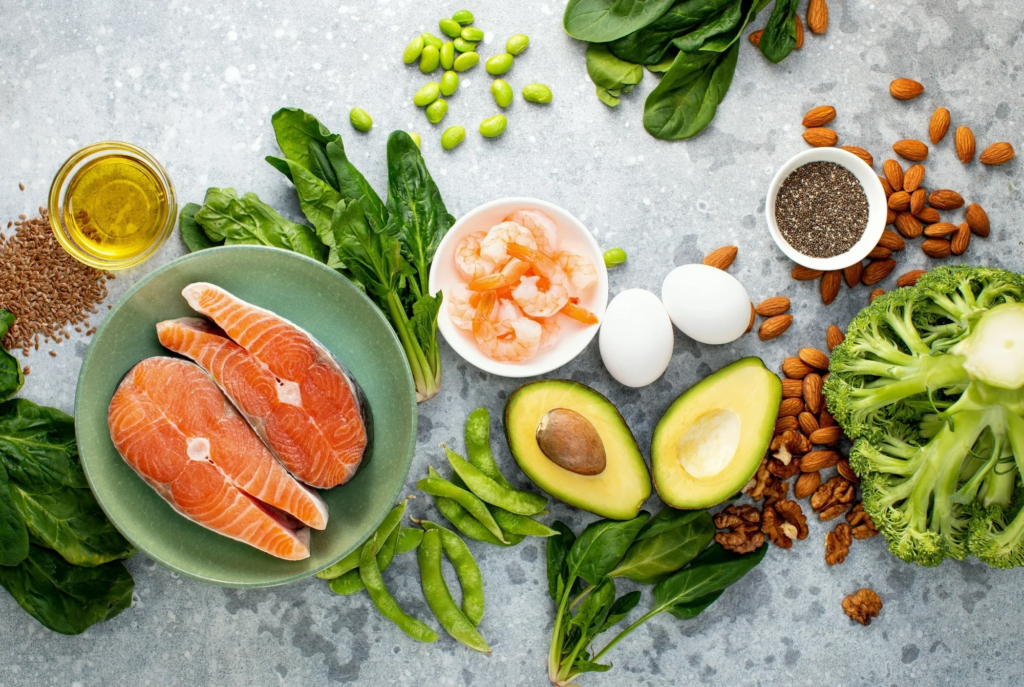
Avoid Processed Foods and Added Sugars
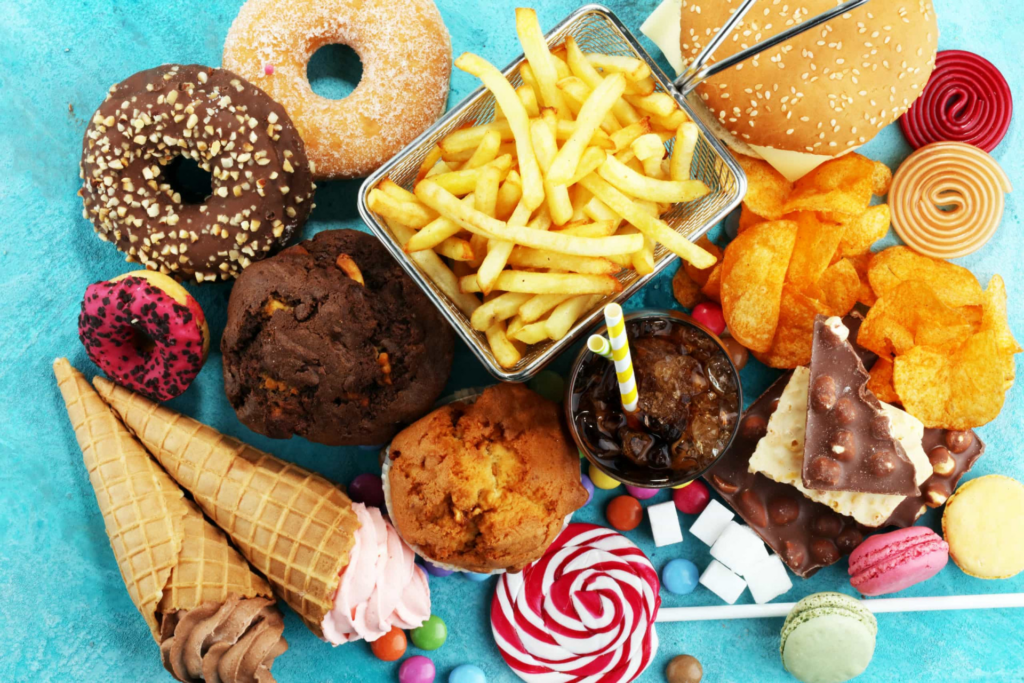
Reduce or eliminate the consumption of:
Fried and ultra-processed foods: high in empty calories and trans fats.
Refined carbohydrates: white bread, non-whole grain pasta, and sweets.
Added sugars: found in sodas, industrialized juices, and desserts.
Stay Hydrated
Adequate water intake is crucial for metabolism and satiety. It is recommended to drink at least 2 liters of water per day. Sugar-free teas and sparkling water are also good alternatives.

Exercise Regularly
Combining a balanced diet with physical exercise enhances weight loss.
Aerobic Exercises
Activities such as walking, running, cycling, and swimming help burn calories and improve cardiovascular health. Aim for at least 150 minutes of moderate-intensity aerobic exercise per week.
Strength Training
Resistance exercises, such as weight training, are important for maintaining and increasing muscle mass, which boosts basal metabolism. Include strength training sessions two to three times per week.
Get Enough Sleep
Proper sleep regulates hormones related to appetite and metabolism. Try to sleep between 7 to 8 hours per night to support the weight loss process.
Manage Stress
Chronic stress can lead to weight gain due to increased cortisol, a hormone that stimulates appetite. Practices such as meditation, yoga, and breathing techniques can help control stress.
Sample Daily Meal Plan
To help you organize your diet, here is an example of a balanced meal plan:
Breakfast:
- Natural yogurt with oats and berries.
Mid-Morning Snack:
- An apple or a pear.
Lunch:
- Grilled chicken breast with quinoa and a green leafy salad with tomatoes and carrots, dressed with olive oil and lemon.
Afternoon Snack:
- A handful of almonds or walnuts.
Dinner:
- Baked fish fillet with steamed vegetables such as broccoli, cauliflower, and asparagus.
Remember to adjust portions according to your caloric needs and consult a nutritionist for personalized guidance.
Final Considerations
Losing weight in 30 days healthily requires commitment to balanced eating habits, regular physical activity, and lifestyle changes. Avoid restrictive diets and focus on a sustainable approach to maintain long-term results. Whenever possible, seek guidance from health professionals for proper support.
Final Thoughts: Is Mitolyn Worth It?
Mitolyn shows promise, particularly for those seeking to optimize their energy levels and support mitochondrial health. While it’s not a magic pill, its carefully selected ingredients have the potential to complement a wellness-focused lifestyle. If you’re considering trying Mitolyn, ensure it aligns with your health goals and consult with a healthcare professional to determine its suitability for your needs.
Ultimately, the question isn’t just “Does Mitolyn work?” but rather, “Does it work for me?” Only through personal experience and a holistic approach to health can you truly determine its value.


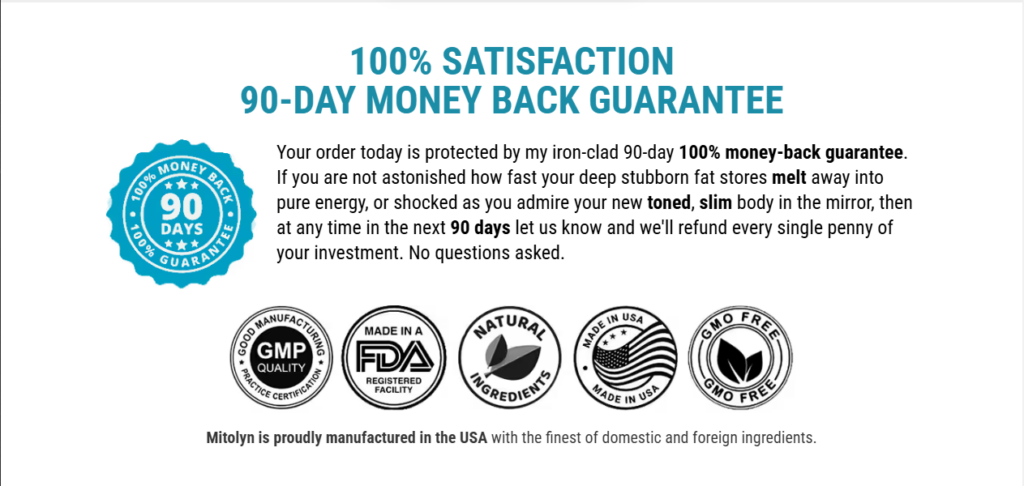


Dr. Sarah Miller is widely recognized as an influential leader in the healthcare field, with a career marked by excellence, innovation, and dedication to improving human well-being. Combining exceptional academic knowledge, clinical experience, and a deep commitment to research, she has become a reference in her specialty.






